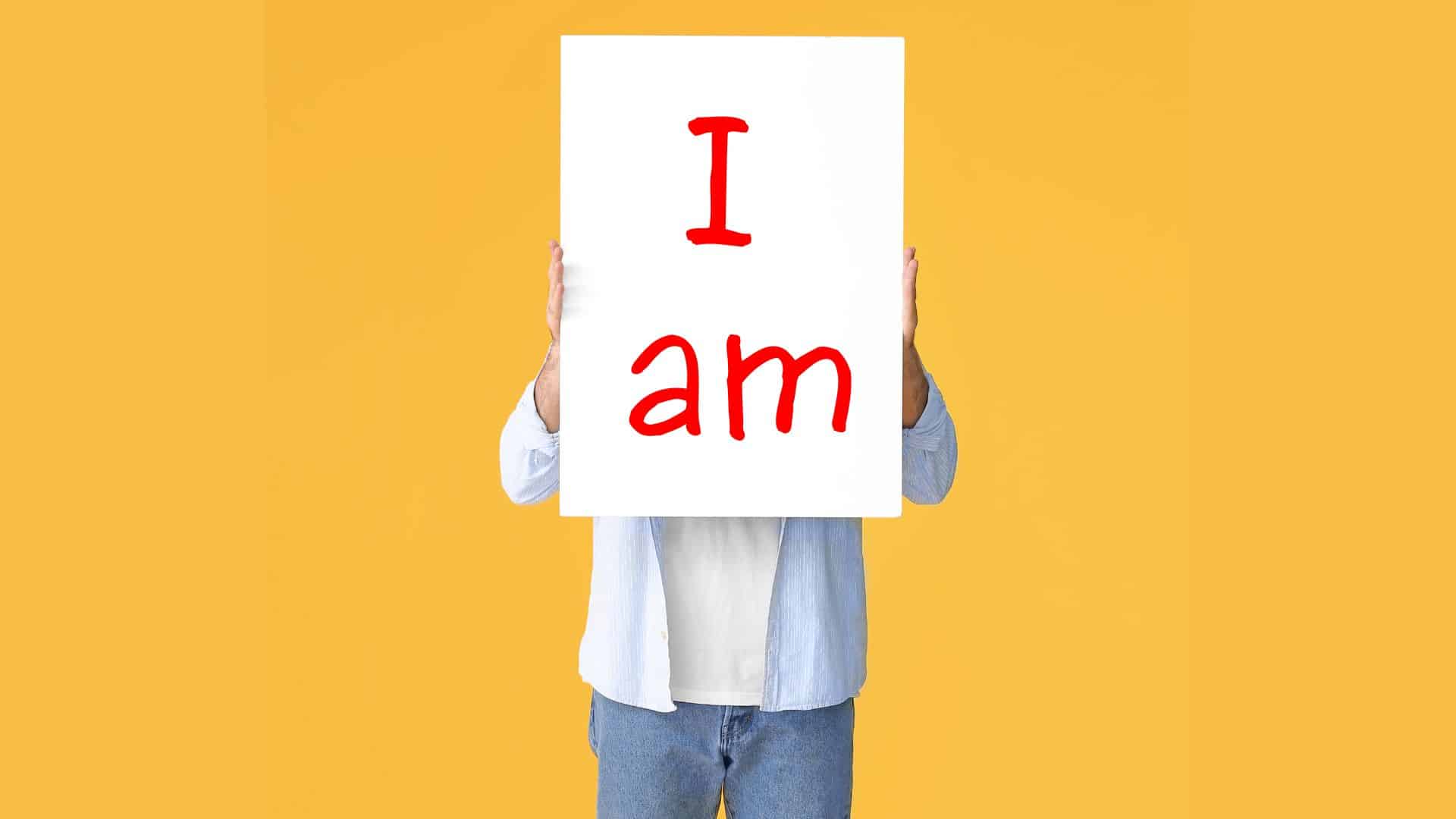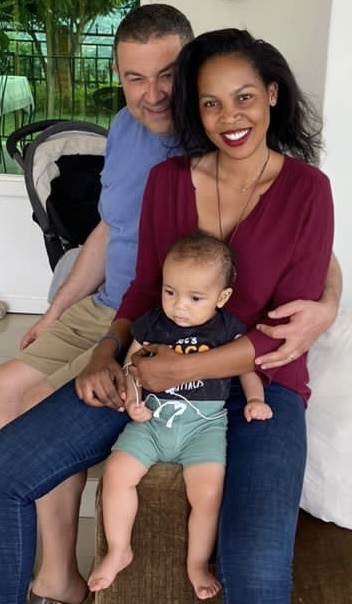We carry complicated identities inside us. But others see only the outside and they carry their own biases. That can result in privilege or prejudice.

A man holds a placard. Photo illustration by News Decoder.
This article was produced exclusively for News Decoder’s global news service. It is through articles like this that News Decoder strives to provide context to complex global events and issues and teach global awareness through the lens of journalism. Learn how you can incorporate our resources and services into your classroom or educational program.
“You can outdistance that which is running after you, but not what is running inside you.” — Rwandan proverb
Who am I? Who are you?
Many of us identify ourselves and others through the lens of our family, our nationality, our religion, our race, our work, etc. But what is our real identity? How are we unique human beings? How are we different from others? How are we similar to others?
The answers to these questions seem to relate to awareness, perception, acceptance and engagement; how others view, accept and treat us. How we know, perceive and accept our true selves. And how we perceive, accept and treat others in relation to ourselves.
For me, there has always been a big difference between how others see me and how I see myself.
Growing up in England, there was no mistaking my Jewish, Lebanese and Persian heritage during a time of rising anti-Semitism and anti-immigrant sentiment. I had a biblical last name (Solomons), relatively swarthy skin and a large, hook nose.
I was often ignored, teased, bullied and ostracised as the “dirty Jew”. I was even spat at and beaten up at times.
Determining where one “belongs” isn’t easy.
This rough treatment was thankfully nothing serious but it was constant enough to make me feel as if I did not belong in my “home” country and I started to look elsewhere in the world for a new home and a new identity.
Everything changed when I began spending time in the United States during and after my university studies. I was now seen as “The Man”: a highly empowered, tall, heterosexual, cis-gender, “white” male, with two degrees from the University of Oxford.
When I lived in Austin, Texas with my now-adult daughter Emma, I might still get mistaken for a Latino and stopped by police were I tanned, unshaven and dressed in a t-shirt and shorts. But I could often talk my way out of any trouble, thanks to my “nice” English accent.
I suddenly had all this power and privilege, which felt strange but liberating in one way and something of a burden in another way. I still felt that I was being closely observed, judged and resented.
Everything changed again after the 9/11 terrorist attacks in 2001. In the aftermath, I was often subjected to “random” security checks in airports as guards saw me as a Southwest-Asian-looking man traveling on his own. Once, in the Vancouver airport, I was stopped four separate times before being allowed back into the United States.

The author with his family. Photo courtesy Jeremy Solomons
We navigate multiple identities.
For the last four and a half years I have been living in Rwanda in East Africa. On the one hand, I am always treated with great respect and courtesy. I am often called Professor or Doctor (even though I hold neither qualification). I am usually the only muzungu (or white person) in the room and if I am waiting in a bank or post office, a well-meaning security guard might try to usher me to the front of the line, which I politely decline.
On the other hand, I am sometimes discounted as just a visiting “expat”, who will be “going home” to the United States or Europe soon. I first came here in 2016 to work with a women’s university. During and after Covid, locals were often surprised that I was still here.
I am also occasionally dismissed as a “white saviour”, who might have delusions of grandeur about what I could really contribute to this country and this continent that I am only starting to know and understand.
Now that I have met and I am happily married to a Rwandan (Merveille) and we are planning to create a much-needed independent center for women with trauma, I have a bit more credibility as a “committed”, long-term local resident.
We also have been blessed with a 10-month-old boy named Max, who will face his own identity challenges as a biracial child in a more multicultural but increasingly judgmental and polarized world.
You can’t control how others see you.
Here in Rwanda, Max is officially known as metis (or mixed) but most people call him muzungu as his skin is lighter than that of his mother Merveille, who is herself often seen as Ethiopian in public as she is relatively tall and often seen conversing with me in English.
Rwandans on the street assume she cannot understand them when they say how cute the muzungu baby is and more ominously, joke about taking him away with them (perhaps to sell on the thriving illegal market here in East Africa).
We suspect that Max might also be teased and bullied for being different here but that could happen in any country.
In the future, we wonder how he will navigate his biracial identity as an adult within and outside his home country, as prominent figures such as Barack Obama, Halle Berry and Trevor Noah have been doing their whole lives. How and where will he create a sense of identity and belonging?
And if Max identifies as male, how will he use the power and privilege that I have always had to help achieve justice and equity for all genders?
My conclusion from all of this external “branding” of myself — and now Merveille and Max — is that I cannot really control how others see and react to me, except to abstain from hanging out in front of the pilots’ cabin on a commercial airplane to avoid putting the armed, incognito security officer on high alert.
But I can certainly control how I relate to others and always try to treat them with respect, kindness, compassion and love, however they appear and whatever they say or do to me.
And I can always control how I see myself: I am primarily a unique human being, devoted husband, proud father of two wonderful children, loving brother, loyal friend, trusted colleague, trustworthy professional and concerned global citizen, who wants to make a positive, sustainable difference in the world.
“Knowing yourself is the beginning of all wisdom.” — Aristotle
Three questions to consider:
- Why was the author marked as different by other people when he was growing up?
- Why does the author worry about how his son will navigate his own identify?
- Are there ways you think that other people see you in a different way than you see yourself?

Jeremy Solomons is a global leadership coach and facilitator based in Kigali, Rwanda, where he has written regular “Leading Rwanda” and "Letter from Kigali" columns for the New Times newspaper. In the past, he was a Reuters financial reporter in Hong Kong and New York City and then a foreign correspondent in Frankfurt. He was also a farmer in Israel; factory worker and teacher in France; banker in England and Switzerland; and entrepreneur in Italy.
Read more News Decoder articles about identity:

Very insightful and relatable, dare say, for most of us. Thank you. Andras